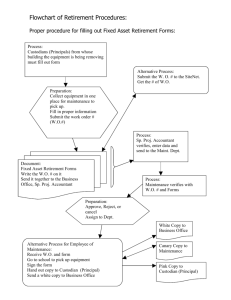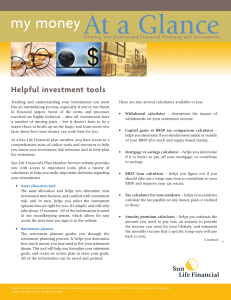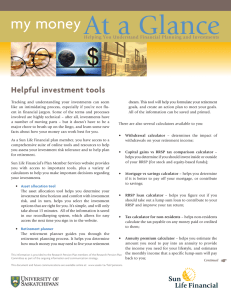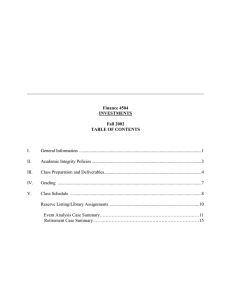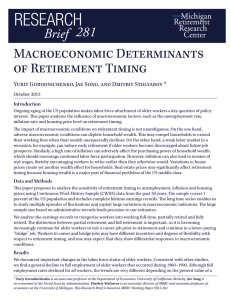Financial Planning Basics
advertisement
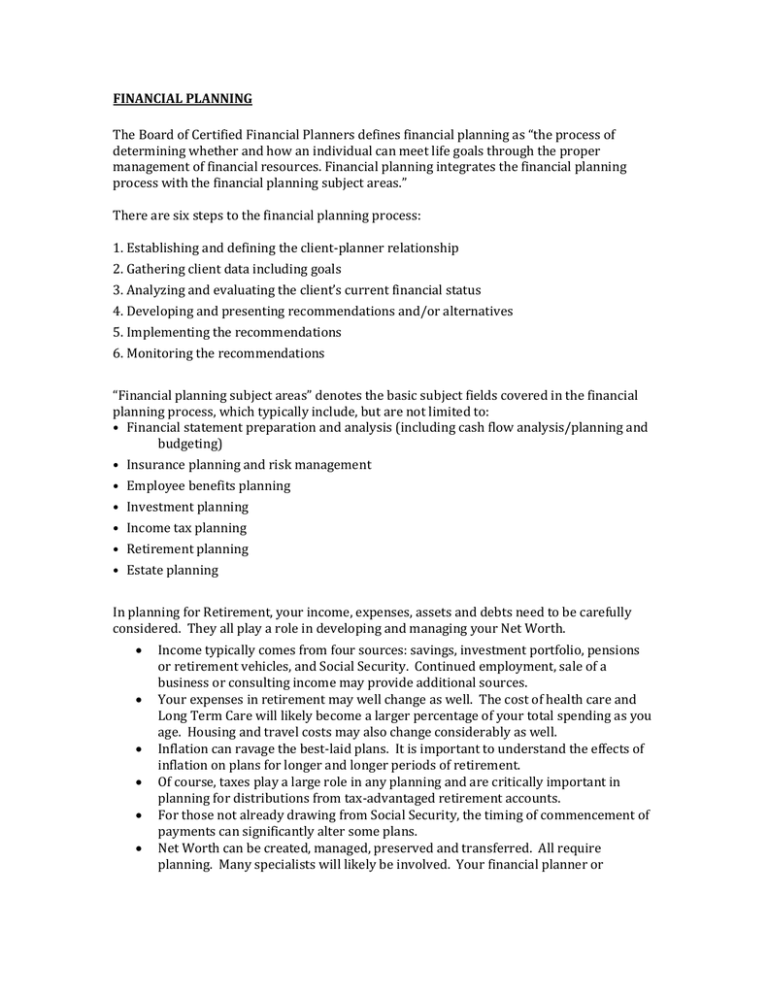
FINANCIAL PLANNING The Board of Certified Financial Planners defines financial planning as “the process of determining whether and how an individual can meet life goals through the proper management of financial resources. Financial planning integrates the financial planning process with the financial planning subject areas.” There are six steps to the financial planning process: 1. Establishing and defining the client-planner relationship 2. Gathering client data including goals 3. Analyzing and evaluating the client’s current financial status 4. Developing and presenting recommendations and/or alternatives 5. Implementing the recommendations 6. Monitoring the recommendations “Financial planning subject areas” denotes the basic subject fields covered in the financial planning process, which typically include, but are not limited to: • Financial statement preparation and analysis (including cash flow analysis/planning and budgeting) • Insurance planning and risk management • Employee benefits planning • Investment planning • Income tax planning • Retirement planning • Estate planning In planning for Retirement, your income, expenses, assets and debts need to be carefully considered. They all play a role in developing and managing your Net Worth. Income typically comes from four sources: savings, investment portfolio, pensions or retirement vehicles, and Social Security. Continued employment, sale of a business or consulting income may provide additional sources. Your expenses in retirement may well change as well. The cost of health care and Long Term Care will likely become a larger percentage of your total spending as you age. Housing and travel costs may also change considerably as well. Inflation can ravage the best-laid plans. It is important to understand the effects of inflation on plans for longer and longer periods of retirement. Of course, taxes play a large role in any planning and are critically important in planning for distributions from tax-advantaged retirement accounts. For those not already drawing from Social Security, the timing of commencement of payments can significantly alter some plans. Net Worth can be created, managed, preserved and transferred. All require planning. Many specialists will likely be involved. Your financial planner or “Personal CFO” should help you coordinate the activities of all of your advisors to optimize results. Final note: Who will pay your bills when you are not able to do so? Make it easy for them. INVESTMENT MANAGEMENT Investment Management should begin with a fundamental conversation of your goals, needs, aspirations, issues, and concerns and how you define success. The conversation builds on your financial plans. Your investment portfolio may well be the dominant source of retirement income, and needs to be carefully managed and monitored. An honest assessment and understanding of your risk tolerance is critical to the success of your plan and the relationship with your investment manager. Asset allocation – to equities and fixed income securities, with many sub-categories of each – is the most important determinant of long-term success. The individual securities involved are the tools of the investment manager. Each asset class has its own risk and return characteristics. Diversification is essential. Avoid the most pervasive causes of the erosion of portfolio value – losses due to excessive volatility, management and transaction fees, and taxes. Develop an expectation and understanding of each. An Investment Policy Statement (IPS) is critical. It will spell out the agreement you reach with an investment advisor on how your funds will be managed. It should address your needs, risk tolerance, investment horizon, tax budget and other important elements of the relationship. Custodians play a critical role in protecting your assets. They are generally large institutions that hold and trade securities as directed by the investment manager. You should understand who the custodian will be, who has powers to trade, and who has powers to withdraw funds from the account. You should receive statements and confirmations directly from the custodian as well as from your investment manager. They should be clear, concise and timely, and available electronically if you so desire. Monitor your accounts regularly. Be very careful in naming beneficiaries of retirement investment accounts. This will control the flow of funds regardless of other intentions or estate plans. General “rules”: Stay invested Diversify and rebalance regularly Shorten duration of fixed income portfolios during periods of rising rates Individual bonds give you greater control over interest rate volatility, tax planning and management costs than most pooled vehicles.

